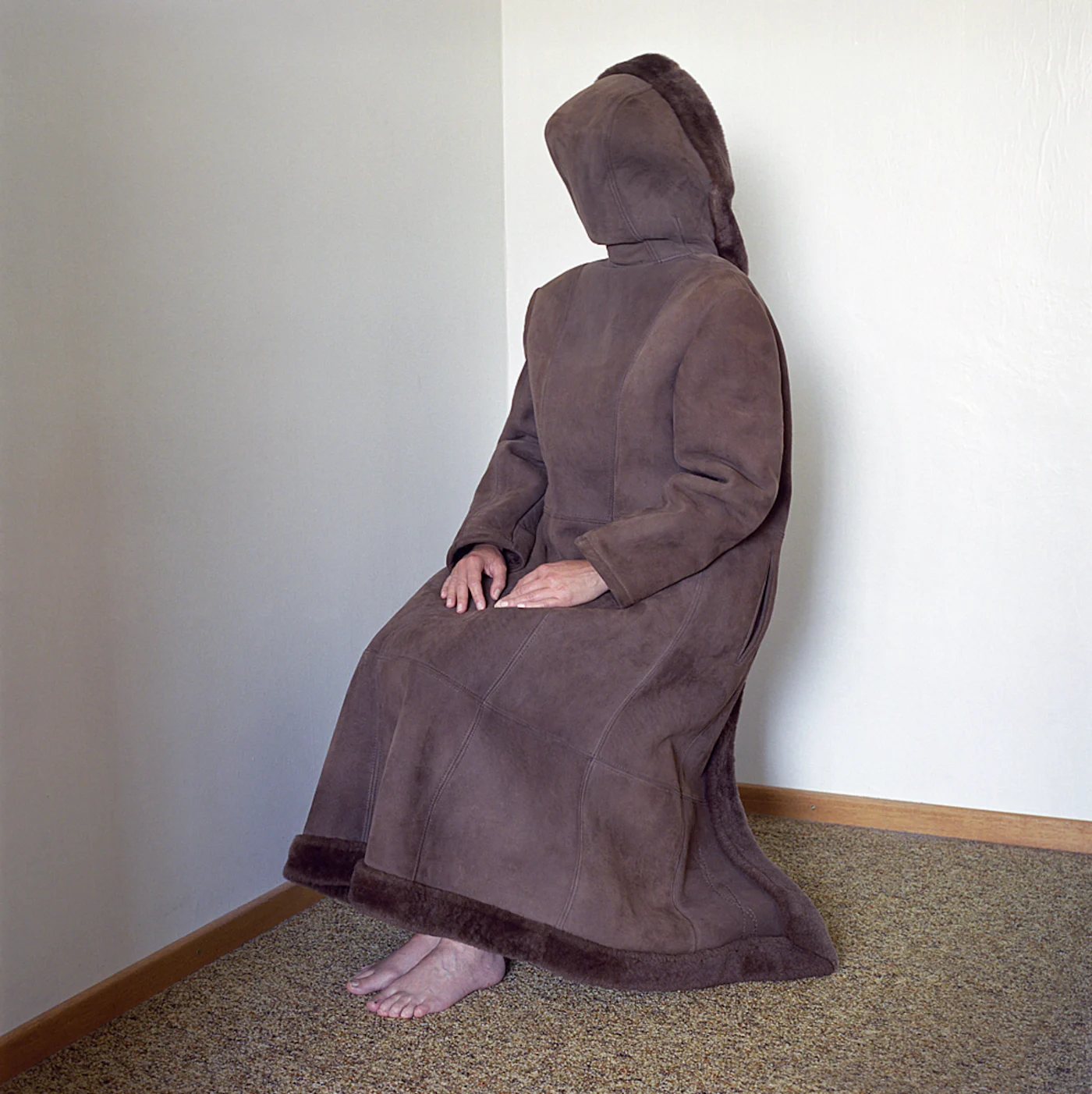Is there an Affective Class?
Howard Slater
“I do not suffer this pain as César Vallejo” —César Vallejo
Cahiers de doléances
Walter Benjamin’s notion of an “affective class” is very tentative. As far as I am aware he neither consistently wrote about it nor does it feature as a phrase in his writings. The notion comes down to us via Pierre Klossowski’s memory of a conversation he had with Benjamin when the latter was living in Paris in the 1930s. A conversation that seems to have orbited around a discussion of Charles Fourier, and which was recollected twenty-odd years later in a letter to Adrienne Monnier. That Fourier should have been the inspiration suggests that Benjamin may have had in mind a notion of the passions and how these should be the mainstay in any revolutionary transformation of wage labor as a social form.1 Christian Hite, in his introduction to a reprint of the letter, offers a kindred point: “it is clear that Benjamin and Klossowski both share a certain interest in the constitutive relationship between forms of affectivity and experimental social structures.”2 The notion of an affective class, then, has utopian contours: a speculative phrase at some remove from class as a category of political economy and its critique. How did Benjamin come to link class with affect? Is this not an oxymoron, apt for poetry, but perilous for theory? Is it not a mistake to collide together (or should we say re-unite?) the personal and the political, the subjective and the objective, the particular and the general? Or does it show a fecund link that, unthinkable at first, has become more apparent over the years, and which furthermore could be articulated as a new means of practicing politics, a new way of forging social relations in an era marked by what some refer to as the “total domination” of capital?
As capital comes to subsume more and more of the human, more and more human qualities and aptitudes are subordinated to the pursuit of surplus value. Through this process, the real subsumption of labor, as Marx called it, becomes the subsumption of the human. The factory of yesteryear becomes the “social factory,” until there is nothing left of the social but an agglomeration of self-protecting niches and “micro-worlds.” This real subsumption is a basic feature of the “biopower” brought to light by Michel Foucault: an ever-increasing power over psyche and soma, which become sources of surplus value in themselves. Regardless of whether this total domination is indicative of a “false totality” — something final, inescapable and unopposable — there is the definite sense, audible in phrases such as “human capital” and “human resources,” that capitalist accumulation has always been accompanied by forms of endo-colonialism. Phrases such as “attention economy” and “unconscious labor” remind us that there is profit to be had from mining both body and psyche. And, so too, is there a profit to be had from harnessing caring and empathic attitudes that as late as the 1990s came to be dubbed “affective labor.”
Is it possible to bring Benjamin’s notion of affective class into common parlance as something other than a utopian metaphor? The word “class” has a weight to it: it implies a shared-in and general category, a marker to rally-around, as was the case when the Workers Movement was at its height. As such, it seems to resist such a possibility. Indeed, those human sensual qualities, embodiedly existential, that can be called “affective” seem forever melded to the private, to the subjective sphere. These opaque qualities, for many years eclipsed by the economic gains fought for by the Workers Movement, have hardly ever gained sufficient traction to become the stuff of politics proper. Yet there is something in them, even in their refusal of intelligibility, that informs our ability to be passionate and to enter into action as well as, in our openness, our ability to be overwhelmed and to suffer from our own socio-historical sensitivities. However, Marxism’s overriding concern for the objective and the structural, for mass economic exploitation, as well as the social democratic obsession with delimited parameters, often meant that the passions as well as personal suffering (from physical pain to psychic trauma) were not dealt with at the collective political level, but marginalized to an arena of the unsaid and the untheorizable. If depression and suicidal impulses could not be dealt with in overcrowded homes then there was always vagabondage and the asylum.
Prior to WWII, there were initiatives and projects that sought to highlight this aporia. Often, they took their inspiration from Freud and psychoanalysis (Wilhelm Reich’s Sex-Pol), as well as early feminist writings on the fringe of the Workers’ Movement (Emma Goldman, Alexandra Kollontai). In the days of mass industrialization and the reality of class struggle, these were obviously seen as minority concerns.3 However, after the 1970s, with the turn to post-industrial societies in the West, this aporia, as the inchoate “labor of affect,” came to take on an increasing relevance. In this way, it parallels the technology-led de-industrialization which eventually came to highlight reproductive labour as much as productive labor. What the Italian revolutionaries termed the “mass worker” turned into the “social worker” and then into “new social subjects.” This latter term (in which “new” seems to suggest subjects other than those who identified wholeheartedly as proletarians) aimed precisely to address the “total domination” of capital. The shift from a society of production towards the “production of society” involved the manufacture of subjectivity, which in turn entailed a kind of endo-colonialization (better known as conditioning.) These “new social subjects,” then, were intended to offer resistance to the creep of capital into all sectors of social life (initially into the education system). They brought to the foreground a combative awareness of the incremental normalization that capitalist restructuring demanded. In this way, the Italians noted a shift from physical labour to psychic labor: first with the role of technicians in production and then with what they came to term “mass intellectuality.”


It is in reference to one of these “new” social subjects — the Women’s Liberation Movement, especially its Italian variant — that Benjamin’s utopian proto-concept of “affective class” finally gains a footing in the real. This movement itself was propelled by a growing focus throughout the 1960s on a “politics of everyday life,” a politics that sought to respond to the total domination of capital as this latter came to “domesticate” human beings and establish itself as what Jacques Camatte has termed a “human community.” Not only did consciousness raising groups enable many women to find a voice — a voice just as much determined by the sharing of emotional experiences as by theory — but their concern to question the demarcation of the “private sphere,” to politicize the domestic in terms of unpaid labour (which included, it has to be emphasized, affective support) led to initiatives like the Wages for Housework Movement. This campaign, involving a “class” of women, played no small role in the theorization of what, decades later, some post-workerist theorists came to describe as “affective labor.’’ This form of labor had been there for centuries, but as long as it was deemed “non directly waged work,” it could be relegated at best to the service industries (which Marx saw as related to revenues rather than to the value creation of capitalist production). Whilst it could be said that all classic labor, as “living labor,” contains an affective dimension (involving both psyche and soma), and that its denial reinforces the prevailing discrimination of manual laborers as brutish, there is still the sense that affective labor was similarly downgradeable as “women’s work,” i.e., as unskilled.
This notion of affective labor was not enough to propel notions of an affective class. As a form of labor, it was theorized as one particular subsection of wage labor in general. How could it then have a “for-all’ relevance that would enable affect to sit untroubledly with the concept of class?
One attempt in this direction was made by Antonio Negri. Negri sought to bring the Marxist notion of the “labor law of value” into conjunction with the Spinozist investigation of “affect.”4 For Negri, the total domination of capital meant that “the more the theory of value loses its reference to the subject the more the value of labour resides in affect.” In other words, if, in the Western post-industrial context, value is no longer measurable by the set tasks of the laboring subject’s working hour, and if the process of subsumption of labor has come to involve the bios of all human qualities, then affect (once occluded) now assumes a new significance. Affect now comes forth into political economy as an explication of what Marx, in speaking of labor power, termed “vital force”: our mental and bodily capacity to work, create and transform. Affect in its Spinozist connotation refers to the ability to affect and be affected, the capacity to act in the widest sense. When read in political economic terms, affect lets us think action in a sense not restricted by the specifics of industrial production but, in a way “set-free” as a generic human capacity (species-activity) that, like child-rearing and domestic labor, has no need for training and qualification. Negri suggests that affect, as a relational phenomenon, constructs and propels a commonality between people (he does not introduce the term class): affect names the combinatory power of living subjects, a power of prospective social transformation. This allows affect to figure as a focus in the struggle against wage-labor, a conflict in which affect, as “vital force,” as immeasurable, outstrips the current forms that determine work as wage-labor.
Negri’s focus on living labor as the ever-present capacity to outstrip capitalist valorization recalls Fourier’s utopian wish to give “passion a social role.” However, affect, for Negri, becomes just another placeholder for something infinite and too wide-reaching to ever take shape consciously between people who could come to identify as an affective class.5 Furthermore, it could be said that, with the ever increasing technologization of work, living labor has receded; instead, we see a return to earlier Marxist notions of labor as a being a matter of indifference to the worker. A job is a job is a job. But in the twenty-five years since Negri wrote this text, new forms of labor, such as support/care work, have arisen. This rapid growth has been propelled by the entry of entrepeneurialism into the health sector. As the NHS eroded, private companies stepped in to compete over state-funded bursaries for the care of particular “incurable” patients. The profit margin was assured by hiring essentially untrained, unskilled people into their workforce who are paid minimum wage to work extended daily shifts of 12-14 hours. On one level this is all well and good, as we have a growing number of “affective laborers” (who could potentially identify as a part of an affective class) joining with those workers already employed by the NHS; but on another level it signals, once more, the devalorization of “women’s work,” as well as an indifference to a form of work that, voided of any passion and strictly monitored, is viewed as an affectless “any-job-whatsover.”


Another possibility for Benjamin’s term affective class to gain a purchase is through the notion of “affectability.” We have a capacity both to affect others and be affected in turn. We respond to cultural products, we can be affected, moved, and even changed by films, texts, etc.6 This also has its political-economic counterpart: our times are marked by an attention economy in which perceptual receptivity is leveraged and transformed into a mode of labor (often unconscious). The powers of perception are within everyone’s grasp (generic); yet, at the same time, it is this very faculty of perception that is being ring-fenced and exploited. From Hollywood to interactive social media, the cultural industry vies for our attention in order to valorize its products or services. The seemingly endless corporatization of culture enacts a disciplinary streamlining of perception that dis-intensifies affect: instead of becoming a transformative power that spurs resistance and social jouissance, mass culture neutralizes affect until all that remains is a kind of ritualization of conservative tropes and themes designed to shore up a manufacture of consent.
Notions of individual taste enter into the picture here as well, since they form a moment in that production of “distinctiveness” which, outside of counter cultural movements, ultimately undermines any kind of unified opposition to exploitation by affective laborers of the attention economy. Movements around music like punk and rave, movements that endorse affectability, that transmit affect, stand in opposition to the perceptual entrammeling of corporate culture, which has always waged a “war at the membrane.”7 It is here where the relational commonality of affect is at its strongest. If it is true, as Bruno Latour puts it, that “to have a body is to learn to be affected, meaning effectuated, moved, put into motion by other entities”8, by the same token the deadening effects of corporate culture, with its promulgation of products that reinforce protective identitarian illusions, demand that we approach this insight with caution. If we must “learn to be affected,” this means that affect is not an innate quality but a matter of a perceptual openness to nuance that these very products seek to diminish. Likewise, “political affectability” (passion) is similarly deadened once the practice of politics is reduced to a kind of technocratic management of capital.
It is more than probable that, at the dawn of the industrial revolution, those who left the fields for the factories had no conception of labor and surplus value as it was coming to be theorized. The same is true of worker-consumers in our day, who have little conception of how their capacities to affect and be affected are being exploited. Whether we consider the domestic labor of (still mainly) women called upon to appease the demands of nature, the caring professions, or the free labor we perform for the algorithms of platform economies, these all occlude — as the Wages for Housework campaign pointed out — the actual modes of work that are being carried out, as well as their psychic costs in terms of abuse, exhaustion, burnout and social isolation. However, at the same time, and proffering a kind of schizophrenization, such forms of work, as what Fortunati refers to as a “natural force of social labor,” are seen as being matters of choice and pleasure. To resist them is deemed unnatural, inhuman, and often carries the stigma of guilt which, in turn, becomes a perverse motivating factor.
In sum, it would seem that Benjamin’s affective class has operated like a “rune” that has remained in incubation since he coined it in the 1930s. It is the unuttered name of not only the “vital force” of wage-laborers, but of an actually existing class of unremunerated workers that capital has taken advantage of whilst occluding their very existence. After all, it is capital’s utopia to have people work for free, or as near as is legally possible (minimum wage), to take pleasure in their work (job satisfaction). Even more so, it is capital’s utopia to extend the working day to twenty four hours, which was finally achieved only by means of a digitalized economy (the society of the spectacle as marketplace). Lastly, whilst sober Marxists endlessly argue, it is surely capital’s realized utopia to have made unproductive labor productive of surplus value.
Privacy, extimacy, identity
There is much that hinders people coming together around their psychic suffering. Not only is this suffering politically inarticulable, it is repressed by society more broadly to the degree that it is seen as a mode of failure on the part of the sufferers themselves. Given that psychic suffering so often entails isolation, it may seem irrational to suggest that such a condition, often suffered in silence, would be sufficient to bring people together into a collective generality that would merit the term “class.” Indeed, acute forms of such suffering are indicative of levels of dissociation that relate to social reality as a threat to be evaded, to such a degree that can provoke the creation of para-realities. This, as well as the psychoanalytical dyad, is not the stuff of political movements.9
However, we must bear in mind just how these acute states arise in the first place: as layers of defence (illusion and delusion) against traumatic suffering (affective turmoil), as symptoms that have arisen at points in which the inner world of the psyche has come into conflict with the demands of capitalist society. This society is not the free space of liberal ideology but a dictatorship of neo-liberal capital in which the negativity at the outer limits of the symbolic consensus is foreclosed and introjected within the suffering subjects themselves, where it continues to reverberate. Instead of sites for “extrojection” and shared history, we end up with the non-said of de-socialized introjection. The inner voice increases in volume as the waiting lists for NHS-funded therapy grow. Psychic suffering, as an inarticulable affective state seeking its expression, is left at the mercy of those ever-multiplying diagnostic categories that generalize singular complexities in order to submit them to the social control of the most “apt” psychiatric drug.10


For many, this suffering found a space of articulation in the Arab Spring, which unfurled like an affective whirlwind from the Maghreb to the Mashriq. While there were many historically-rooted factors that conditioned these uprisings, their catalyst lay in a singular act of self-immolation. When street vendor Mohammed Bouazizi set himself on fire in protest against police corruption and harassment by market inspectors, he united the hitherto separable categories of private and public (his subjective suffering faced with objective laws). At the same time, his gesture succeeded in politicizing the seemingly unintelligible and unsymbolizable act of suicide.11 In Tunisia, five more self-immolations were attempted. These acts were an extrojection at the outer limits of accepted communication, they were affective in the sense of their opacity: neither finding the words nor a collective enunciative setting for an anger that outstripped common relations of understanding. Nonetheless, they were enough to catalyze an outpouring of rage in others (e.g. the Day of Rage in Cairo on January 25, 2011). One could describe this self-immolation as an irruption of psychosis (severance from reality, from reality of “self”) into the everyday, a Benjaminian messianic rupture with social reality that, in his seminar on psychosis, Lacan referred to as a “sudden emergence of a total strangeness…forcing a reshaping of the world.”12 In this way, from Tunisia to Egypt, with no organizational centralization or coordination, uprising followed upon uprising. These were then followed by the Movement of the Squares in the West, which continued their practices of assemblies and public abreaction, all of which felt like an unconscious revival of the Cahiers de Doleances in the years leading up to the French Revolution. This concern for psychic suffering could be witnessed in the London Occupy movement, whose journal, Occupy Times, published a supplement on mental ill-health activism in which writer Bruce Levine suggested that we “depathologize and repoliticize suffering.”13
To depathologize psychic suffering is to deindividualize it. Better, like the consciousness raising groups of the Women’s Liberation Movement, it is an offer to belong with others in what Lauren Berlant dubbed “public intimacy” and what Lacan referred to as extimacy. This is the meaning of César Vallejo’s remark that, “I do not suffer this pain as César Vallejo.” It points to the betweenness of affect, how another’s suffering can impact upon us, how, in its enigmatic formlessness, it has an efficacy beyond individualized identity. This points towards the possibility of unifying around this suffering: a particular suffering can, in sites of extrojection, generalize and become a problem “for-all.”14 Vallejo’s pain takes him beyond himself, he deliberately exits from his own named identity; but this beyond is not some poetic plane of transcendence, but social reality itself. Vallejo does not seek to hide his pain in the private sphere but, acknowledging the ubiquity of suffering, he seeks to make it the basis of a solidarity.
Samo Tomšiĉ, in his reading of Lacan, has spoken of the symptoms of psychic ill health as being unable to be “detached from the social structures.” According to Tomšiĉ, “there is no such thing as a private symptom.”15 This points back to the arguments of anti-psychiatry and to Frantz Fanon’s notion of “sociogeny” and its compliment of “sociotherapy,”16 which he deployed as a corrective to the ontogeny and phylogeny that enabled psychiatry to treat psychic suffering as a diagnosable personal problem locked-away inside individuals made culpable for their symptoms (forestalling any recovery.) For Tomšiĉ, the sociogenic approach would entail the “negative common ground of all subjects,” subjects that are, under the structural reality of neo-liberalism’s fictional homo economicus, sustained as “damaged,” as forever in deficit.17 As with the classical Workers Movement, there is ground for a coming-together if the symptom, as an affective state, a condensation of psyche and soma, is embraced as a mode of articulation at the limit of the symbolic consensus of language as shared meaning. This also implies a shift from speaking to listening and from listening to learning: only in this way can we become sensitive to the “semiotic of the impulses,”18 the nuanced gestures, the internal murmurs, that the suffering body articulates.
Recall Marx’s rallying cry: “A class must be formed [...] a class which does not claim a particular redress because the wrong which is done to it is not a particular wrong but wrong in general.”19 Could Benjamin’s proto-concept take on a similar sense of urgency? It would appear that those developing Lacan’s theories are looking in a similar direction. Tomšiĉ, in a strikingly apposite way to these musings, speaks of “enabling suffering subjects to form social links.”20 In this, he takes a cue from Lacan’s seemingly paradoxical urging for subjects to identify with their symptom: “This identification […] breaks the particularism of identities […] by incorporating universal negativity in the subject’s identity (alienation, inadequacy, instability) that binds all subjects beyond their particular […] identities.”21 Once more, there is this liberatory urge to breach the dualism between the general and the particular, the private and the public. Moreover, in this Lacanian take on matters, it is said that under capitalism there is an “abyss of non-relation in the midst of the social.”22 The capitalist drive for valorization at any human cost creates a social fabric marked by private property and an ensuing mistrust that breeds jealousy and animosity as well as a self-protective taciturnity. The capitalist social relation, exacerbated under neoliberalism, is one in which advantage is sought over others, where niches and micro worlds seek to expel “external threats” and the “truth value” of language (as abreactive and “fearless speech”) comes to be elided. In this light, the idea of a resuscitated politics as the forging of new social relations takes on an added impetus: damaged and indebted social subjects need to form this social link in the first place. As Tomšiĉ puts it, the practice of politics has the preliminary aim of creating “a social bond for subjectivities deprived of the conditions of sociality […] to open a space for their symptom to speak.”23
Groups, crises, inclusive disjunction
Tomšiĉ’s words are echoed by fellow neo-Lacanian Jelica Šumiĉ. Discussing groups, Šumiĉ adopts the dichotomy of the universal (for-all) and the particular (not-all), setting the political task for our times as that of bringing about an extimacy that goes beyond privacy, “the possibility of a transmission to all” of that which, in the psychoanalytical setting, “can only be said to one alone.”24 Such a call for public intimacy points to the barrier that lays in the way of encouraging people to identify with their symptom: what happens when this symptom is the very “materialization of [their] dysfunctioning”?25


Thus far, mental illness and the admission of maladjustment have been linked — and, one could say, embraced — via the realm of identity politics. Whilst this sharing of suffering can give a rich vein of testimony and propulsion to the notion of an affective class, what happens more often is that identity politics only further embeds the kind of narcissism that would have us amend the header quote to say: “I suffer this pain as César Vallejo.” In this way, Vallejo would name himself as the unique sufferer, a sufferer like no other, instead of one who, suffering in conjunction with “any-other-whatsoever,” offers affective ambivalence and the will to express pain as a liminal zone of the potentially communicable. The subject of identity politics resists the impersonality of affect. The latter undermines the self-assurances of identity by inviting us to struggle with psychic opacity. Affect makes all of us not the subjects of thoroughly rational choices but “subjects of the unconscious,” in which there subsists the pre-individual level of an infancy that is not conscious of separative categories. Identity politics functions at the level of political and economic representations generated by capital, generalized representations in which the particular — the singularizing dynamic of affect — is forsaken only to return as a commodified “phantasm” through which capitalist subjects can both recognize and valorize themselves.
Late capitalist affect suspends us in an experimental state. Our lives play out in a condition of “metastability” that is incompatible with the notion of class as a category. Such a state of being cannot claim for itself a hard and fast identity, but is at best condemned to a perpetual exploration of tensions and ambivalences for which capital allots us neither the time nor space. What was once known as an “identity crisis” signified more or less the opposite of defining the self in terms of identitarian categories. On the contrary, such crises were actually informed by a rejection of these categories in the first place. That such a rejection can lead to psychic crises often associated with adolescence is no accident: young people not only exist in a space between youth and adulthood, they are also in closer psychic connection to the period of pre-verbal infancy. Daniel Stern has explored this latter dimension through his notion of “vitality affects,” arguing that the infant, for whom language is inadequate, is more attuned to atmospheres and emotional tonalities that do not fit easily with categorical taxonomies. In the absence of language, communication still proceeds, but it does so by means of what Stern terms “affect attunement,” or what we could think of as congruence: the parent often mirrors and responds to the gestures initiated by the infant, there is a sense of bodily skin-on-skin contact, a making at ease, a responsiveness to pain and anxiety, a to-and-fro of asignifying sounds, a rhythmic interaction etc.26 Here we are in the realm not merely of the affective labour of raising children and care work, but in the more deep-seated terrain of the self as a subject of the unconscious. According to some psychoanalysts, it is this very form of (not always seamless) communication that, by circulating affect through as a process of mutual inherence, leads to the very formation of what we call the psyche.
The formation of the unconscious is an ongoing social process. This process includes an aspect of what Gilbert Simondon calls the “pre-individual” that is strongly related to affect. The baby’s frustrated crying is indicative of an indiscernible state through which a will to express its being outside of language pours forth, giving rise to the sound of anxiety (phonē.) The “identity crisis” noted above stands in an intimate relation to this pre-individual portion that, as with the Freudian unconscious, cannot be rendered legible by means of language (hence Stern’s affect attunement). In this, it is akin to what Freud terms the primary process, a stage positioned prior to the acquisition of language by which we accede to the shared symbolic dimension of categories. An identity crisis could thus be seen as an “upwelling” of affect, an upwelling or abreaction that, being unclassified and uncategorizable in the first place (not cathected by language nor finding a sense of symbolic belonging), leads to a form of anxiety. The young adolescent is conscious of being more than an individual, that is to say, she is a singularity for whom the identitarian categories on offer are ill-fitting. Such an understanding of affects as pre-individual provides us with a differential conception of identity as an ongoing process of “individuation.” That is to say, the formation of each singular person entails a transindividual process. It is within this process that affect plays a fracturing role since, as Benjamin writes of Baudelaire, it can “interrupt the course of the world.”27 This occurs when aspects of pre-individuality — body memories, as a semiotic of the impulses, as “implicit relational knowing” (Stern) — come to blur the line of demarcation between the general (the for-all) and the particular (the not-all), a demarcation line that, as we have seen above, is constitutive of a “social non-relation.” Affect, as an eruption of the pre-individual, traverses this line and forges a link between the for-all and the not-all, the general and the particular.
What, then, is an “identity crisis?” There is a society-wide occlusion of the pre-individual component of affect, which results in a stunting of our affectability. Such an occlusion severs us from a fundamental human potentiality: the pre-individual portion, one could say, as a recognition of our preverbal infant being, accompanies us throughout our life and (as with the unconscious) could be said to constitute the “otherness” constitutive of what was known as the self. This is why Simondon can write that “the subject is an individual and other than an individual.”28 There is a base level of the psyche’s sociality, its being brimful of social material, that goes unrecognized, and is instead channeled towards personhood as a proprietorial boundedness (untroubled by any “other” or any phonē.) It is this sense of closure, with its suppression of affect, with its foreshortening of a becoming-singular, with its feeling of isolation, that is being resisted when an adolescent undergoes an “identity crisis.” Such crises announce a burgeoning awareness of being other than who we think we are. We sense the potentiality to become other than who we have thus far been made to be. That such an “affective surplus” can be seen as alienation — since it works to distance us from an identitarian sense of “self” — explains why Lacanians like Tomšiĉ see it as affording a “negative common ground:” to embrace this symptom of being alienated is likewise to embrace becoming transindividual, and with this, to experience a renewed impetus to form the “social link” with others. In a way, then, an “identity crisis” is a protest against the mutilating violence of being forced to halt our individuation. This artificial interruption of our becoming-singular likewise forces us back into the “social non-relation” that lies at the root of our mental illness.


The transindividual, if it was recognized, would be deemed a “damaged subject” as opposed to the much more common practice of defining society as a matter of “inter-subjectivity.” The latter implies a relation between already constituted individuals which Simondon sees as carrying with it a kind of functionality, a functionality adequate to an untroubled functioning of society free from “identity crises” and anxiety; a consumer society in which people are targeted to consume their own identity and thus not even embark upon a questioning of either themselves or the society of which they are a part. Stable and unaffectable subjects are rewarded for participating in the blocking of individuation (the passage to singularization) when they steer clear of the primary process of pre-individual affects that would expose them to the trauma of being their own other. Under the practical terms of a sociotherapy however, such crises and traumas could compel us, as “damaged subjects,” to form the social link as an affective class, affording us a means of politicizing our symptoms and “filling the world with powerful weak.”29 This approach to social struggle, then, comes to be one of resistance to a normativity that can be propelled as much by the spur-to-expression of opaque affect as by what Tomšiĉ has (ominously) called the “collective management of alienation.” However, this conflict, with its attendant awareness of affect as a “vital force” (Marx) has thus far been acknowledged only on the fringes of politics proper. Instead, it has tended to be relegated to counter-cultural terrains, in particular those that seek to engender new forms of sociability by rethinking and reinhabiting what it means to be an “individual,” thereby aiming at the “inclusive disjunction” of collective individuation.
As a “poetry ready to be made concrete,”30 the opacity of affect can lead either to sublimation that identifies with the victors of history, or to a sublation that shares in the “negative common ground” of alienation and psychic instability. Only by pursuing the latter course can we form the social link of an affective class, and together reevaluate sadness as a “vital force.” This entails a shift from class in its traditional political economic connotation to class in its libidinal economic aspect, a dimension of the capitalist socius that we can no longer afford to deny. This is perhaps why neo-Lacanians prefer to speak of a “paradoxical class [...] grounded neither in a signifier, nor in an attribute or property, but [which] aims at that which is irreducibly singular in each of its members.”31 Here we are returned, once again, to the central breakthrough of Fourier’s phalanstery, which remains the crux of all social yearning, of all utopianism: how can singularities, passionate disparities, affective ambivalences, experience a sense of belonging together without instituting the normopathy of regularization? The only solution, as Felix Guattari observed, is that “individuals must become both more united and increasingly different.”32
September 2024
Images: Birthe Piontek
Notes
1. As Réne Schérer writes in “Fourier’s Rally of Love,” “The objective is not to repress passions, or to reduce them by rendering them inoffensive, but rather to intensify these passions by giving them a social role” (in G. Hekma (ed.) Past and Present of Radical Sexual Politics, Mosse Foundation, 11-17). The social form that these would take for Fourier is groupings (known as “series”) that interact to form a wider collective which he termed “phalansteries.” Fourier, writing in the early 19 century, does not speak of classes in the Marxist sense.↰
2. See Pierre Klossowski, “Letter on Walter Benjamin,” in Parrhesia No. 19, 2014. Online here.↰
3. Victor Serge recalls from the USSR of the 1920’s the often-repeated refrain: “No psychology!” See his Notebooks 1936-1947, New York Review of Books, 2019, 380. ↰
4. Antonio Negri, “Value and Affect” (1999) trans. Arianna Bove. Online here. Whilst not directly concerned with affect, Leopoldina Fortunati addressed the political economy of housework in the late 1970s and spoke of the “non-material use value” of the emotional and affective support that women provided in the household. See her Arcane of Reproduction, Autonomedia, 1995.↰
5. In his text, Negri has recourse to the notion of a “non-place” which seems to be a rendition of the space of immeasurability (or undefinedness) that affect opens up (more on this below.) Even so, it seems to have utopian ramifications in terms of a potential space for non-capitalist production in which “value is now an investment of desire.” Or has this “non-space” now come to articulation in an era of cloud-based platform economies that suck up “vital force” (as desire) without the need of a productive infrastructure.↰
6. We might think here of the role that shock and “profane illumination” play in Benjamin’s writings.↰
7. See Howard Slater, Anomie/Bonhomie and Other Writings, Mute Books, 2012, 101.↰
8. Bruno Latour cited by Melissa Gregg and Gregory Seigworth in their introduction to The Affect Theory Reader, Duke University Press, 2010. Emphasis added.↰
9. One should mention here some efforts in this direction: the Kingsley Hall experiment (1965), The Mental Patients Union (1973), The Women’s Therapy Centre (1976), East London Big Flame’s Red Therapy (1978), and the Mad Pride Movement (1993.)↰
10. Notebook - September 2015: “75% needing help don’t get it; 10% increase in sectioning; 1 in 4 adults experience a diagnosable mental health problem in any given year.” This is taken from a leaked report published in The Guardian on February 13, 2016. More info here.↰
11. Bouazizi’s act seems like the most extreme form a “human strike” can take: “[H]uman strike [designates] the most generic movement of revolt against any oppressive condition. [It] attacks the economic, affective, sexual, and emotional positions within which subjects are imprisoned.” See Claire Fontaine, Human Strike has Already Begun and Other Writings, Mute/PML books, 2013. ↰
12. Jacques Lacan, The Psychoses, Routledge, 1993, 164. Accessed at Memory of the World.↰
13. Bruce Levine, “Meeting the Needs of the Power Structure” in Occupy Times No. 24, 2014.↰
14. In his discussion of Bataille’s notion of inner experience, Maurice Blanchot observes that “spaces of interiority or intimacy […] are never the space of a subject, but a gliding beyond limits.” See The Unavowable Community, Station Hill Press, 1988, 16.↰
15. Samo Tomšiĉ, The Capitalist Unconscious, Routledge, 2013, 197.↰
16. In probably the first appraisal of Fanon’s psychiatric writings, Hussein Bulhan defines sociogeny as a “psychopathology resulting from a person-specific reaction to a pathogenic environment,” and sociotherapy as having its “true milieu [in] concrete society itself.” See his Frantz Fanon and the Psychology of Oppression, Springer 1985/2005.↰
17. Tomšiĉ, The Labour of Enjoyment, August Verlag, 2019, 16.↰
18. This phrase is discussed in Pierre Klossowski, Nietzsche and the Vicious Circle, Athlone, 1997, 15-54.↰
19. Karl Marx, cited in Selected Writings, edited by Bottomore and Rubel, Pelican, 1961. Following Benjamin, we would have to extend this “wrong in general” to the sufferers of all past history.↰
20. Tomšiĉ, The Labour of Enjoyment, 190.↰
21. Tomšiĉ, The Labour of Enjoyment, 94.↰
22. Tomšiĉ, The Labour of Enjoyment, 45.↰
23. Tomšiĉ, “No Such Things as Society?” in Difference – a Journal of Feminist Cultural Studies, Vol 3, No. 2-3, 2022. ↰
24. Jelica Šumiĉ “The For All: Grappling with the Real of the Group” in Crisis and Critique Vol 6, No. 1, 2019. Online here. Interestingly this essay, and other texts by the neo-Lacanians, make scant reference to psychoanalytic group therapy and its rich theoretical history, from Wilfred Bion and S.H. Fowlkes to François Tosquelles and Félix Guattari. Not to mention the encounter groups and consciousness raising groups of the late 1960s and 1970s, which coincided with Fanon’s proposal that such sites of extrojection take place in “concrete society” and outside the pathologizing remit of psychiatry.↰
25. Tomšiĉ, The Capitalist Unconscious, 73.↰
26. See Daniel Stern, The Present Moment in Psychotherapy and Everyday Life, W.W. Norton & Co., 2004↰
27. Benjamin cited by Michael Löwy, Fire Alarm, Verso, 2005, 92.↰
28. Gilbert Simondon cited by Jason Read, The Politics of Transindividuality, Brill, 2016, 110. Accessed at Memory of the World.↰
29. This phrase appears in César Vallejo’s poem “Battles,” and is included in his sequence of Spanish Civil War poems. See Spain Take this Chalice from Me and Other Poems, Penguin Classics, 2008.↰
30. See Raoul Vaneigem, Fragments pour une poétique. Online here. ↰
31. Šumiĉ, “‘The For All.’” ↰
32. Félix Guattari, The Three Ecologies, Bloomsbury, 2014, 69.↰